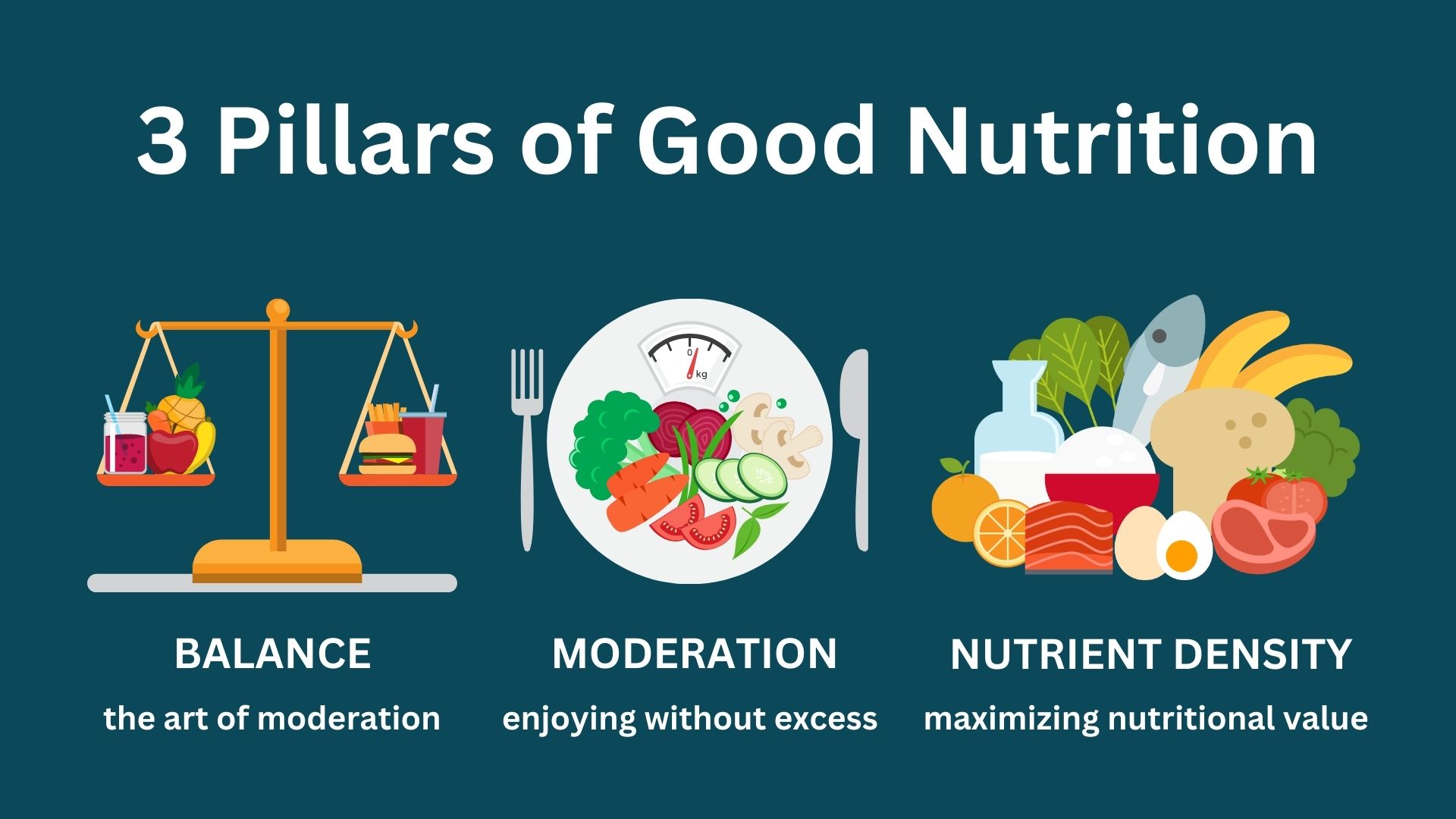Nutrition is the cornerstone of a healthy lifestyle, yet navigating the vast sea of dietary advice can be overwhelming. Amidst fad diets and conflicting information, certain principles stand firm as the bedrock of good nutrition. These principles, often referred to as the three pillars of good nutrition, provide a framework that transcends trends and promises lasting health benefits.
The Three Pillars of Good Nutrition
1. Balance: The Art of Moderation
At the heart of good nutrition lies balance. This pillar emphasizes consuming a variety of foods in appropriate proportions to achieve optimal health. It’s not about deprivation or strict rules but rather about making informed choices that support overall well-being.
Key Aspects:
- Macronutrient Balance: Adequate intake of carbohydrates, proteins, and fats tailored to individual needs.
- Variety: Incorporating a diverse range of foods ensures a broad spectrum of nutrients.
- Portion Control: Being mindful of portion sizes to avoid overeating while still enjoying favorite foods.
Balance prevents the pitfalls of extreme diets, which may lead to nutrient deficiencies or unsustainable habits. By embracing a balanced approach, individuals can maintain energy levels, support metabolic functions, and foster a positive relationship with food.
2. Moderation: Enjoying Without Excess
Moderation complements balance by encouraging mindful eating practices. It promotes the enjoyment of all foods while recognizing that some should be consumed in smaller amounts or less frequently.
Practical Applications:
- Mindful Eating: Paying attention to hunger and fullness cues to prevent overeating.
- Occasional Indulgences: Allowing for treats or less nutritious foods in moderation without guilt.
- Alcohol and Sugars: Limiting intake of alcohol and added sugars to support overall health goals.
Moderation empowers individuals to savor food experiences without compromising health objectives. It encourages flexibility and reduces the allure of restrictive eating patterns, promoting sustainable dietary habits.
3. Nutrient Density: Maximizing Nutritional Value
Nutrient density focuses on the quality of food choices by prioritizing those that provide the highest concentration of essential nutrients per calorie. This pillar ensures that every bite contributes to meeting nutritional needs.
Key Principles:
- Whole Foods: Opting for minimally processed foods rich in vitamins, minerals, and fiber.
- Colorful Plate: Including a variety of fruits and vegetables to maximize phytonutrient intake.
- Lean Proteins and Healthy Fats: Choosing sources that offer essential amino acids and fatty acids.
By prioritizing nutrient-dense foods, individuals enhance their overall health and reduce the risk of chronic diseases. Nutrient density supports optimal growth and development, boosts immune function, and fosters longevity.
Conclusion: Building Your Nutrition Foundation
In the pursuit of good nutrition, these three pillars—balance, moderation, and nutrient density—serve as guiding principles. Together, they form a robust framework that promotes sustainable dietary habits and supports long-term health goals. Embracing these principles empowers individuals to make informed choices, cultivate a positive relationship with food, and enjoy the benefits of a nourished body and mind.
As you navigate your nutritional journey, remember that small, consistent changes can yield significant results. Whether aiming to manage weight, enhance athletic performance, or simply improve overall well-being, the three pillars of good nutrition provide a solid foundation upon which to build a healthier, happier life.

